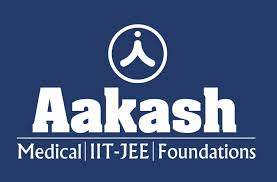BACKGROUND AND RELIEFS SOUGHT
1. The present set of writ petitions filed in the nature of public interest litigation seek quashing of letter bearing No. 50-24/2022-3502 dated 02.09.2022
issued by the State Election Commission, Bihar (hereinafter referred to as the ‘Commission’) wherein it is stated that if a candidate to the
municipal election gives one of his/her children in adoption, they will continue to be the biological parent of the said child and therefore be disqualified
from contesting elections as having a third child, will hit at the disqualification provision.
2. Further a declaration is sought that a person having three children having given up one child in adoption could not be termed as the biological parent
of the said child. Still further, that as a result of this adoption, such person shall not be disqualified u/s 18(1)(m) of the Bihar Municipal Act, 2007
(hereinafter referred to as the ‘Municipal Act’).
ARGUMENTS ADVANCED
3. The petitioner is a practicing advocate of this Court and in furtherance of the relief sought as stated above, has submitted that the impugned letter is
arbitrary and illegal giving a meaning to a provision of the Municipal Act, which it itself does not purport.
4. It is submitted that Section 18(1)(m) talks about the person interested in contesting elections not having more than two living children one year after
the commencement of the Act. And so, if one of the three children of the potential candidate has died, he/she cannot be said to have more than two
living children.
5. In support of the above submissions, the petitioner cites Section 12 of the Hindu Adoption and Maintenance Act 1956 (hereinafter referred to as the
Act’). Section 12 of the Act reads as under:-
12. Effects of adoption.―An adopted child shall be deemed to be the child of his or her adoptive father or mother for all pur-poses with effect from
the date of the adoption and from such date all the ties of the child in the family of his or her birth shall be deemed to be severed and replaced by
those created by the adoption in the adoptive family: Provided that―
(a) the child cannot marry any person whom he or she could not have married if he or she had continued in the family of his or her birth;
(b) any property which vested in the adopted child before the adoption shall continue to vest in such person subject to the obligations, if any, attaching
to the ownership of such prop-erty, including the obligation to maintain relatives in the family of his or her birth;
(c) the adopted child shall not divest any person of any estate which vested in him or her before the adoption.
6. It is then submitted that the Act is a parliamentary legislation and therefore, no other legislation much less any letter or circular can alter or change,
what has been set out in such legislation. In other words once a person is given in adoption, relations with the biological family are severed. A
disqualification on this ground cannot be held good in law.
7. Section 63 of the Juvenile Justice (Care and Protection of Children) Act, 2015 is also referenced. It reads as under:
“63. A child in respect of whom an adoption order is issued by the court, shall become the child of the adoptive parents, and the adoptive parents
shall become the parents of the child as if the child had been born to the adoptive parents, for all purposes, including intestacy, with effect from the
date on which the adoption order takes effect, and on and from such date all the ties of the child in the family of his or her birth shall stand severed
and replaced by those created by the adoption order in the adoptive family:
Provided that any property which has vested in the adopted child immediately before the date on which the adoption order takes effect shall continue
to vest in the adopted child subject to the obligations, if any, attached to the ownership of such property including the obligations, if any, to maintain the
relatives in the biological family.â€
8. In light of these provisions of two Acts, it is submitted that the Commission vide this Notification has effectually changed the meaning of the word
“adoptionâ€.
9. Of the Municipal Act itself, it is stated, the letter runs counter. The provision does not speak of status of the parents having given a child in adoption
neither does it speak of the rights of children given in adoption.
10. The object and purpose of the provision, it is submitted, is to discourage increase in population. Having more than two children and then giving up
one in adoption in no way, negates this objective and, therefore, no rational nexus can be seen in the letter issued by the Commission.
POSITION IN LAW
11. It is a trite in law that Article 14 forbids class legislation; it does not forbid reasonable classification for the purpose of legislation. To satisfy the
constitutional test of permissibility, two conditions must be satisfied namely: (1) that the classification is founded on intelligible differentia which
distinguishes persons or things that are grouped together from those left out and (2) that such differential has a rational relation to the object sought to
be achieved by the statute in question [Budhan Choudhary vs. State of Bihar; AIR 1955 SC 191].
12. It is also known that such statutes, those which restrict eligibility to contest elections on the basis of number of children one has among others,
have been enacted by number of States and the Municipal Act under Section 18(1)(m) has not charted hitherto unexplored waters. In the State of
Haryana, the State of Orissa and many others such legislations have been enacted and have withstood judicial scrutiny.
13. In Javed v. State of Haryana (2003) 8 SCC 369, Hon’ble the Supreme Court was asked to interpret provisions of the Haryana Panchayati Raj
Act, 1994 whereunder Section 175- a person having more than two children was disqualified from being a member of Panchayat Samiti or Zila
Parishad. It was held by the Full Bench speaking through R.C.Lahoti,J. (as His Lordship then was), as under:-
“It was submitted that the number of children which one has, whether two or three or more, does not effect the capacity, competence and quality
of a person to serve on any office of a Panchayat and, therefore, the impugned disqualification has no nexus with the purpose sought to be achieved
by the Act. There is no merit in this submission……â€
14. This holding was in light of Article 243-G and Entries 24 and 25 of the Eleventh Schedule pertaining to family welfare and women and child
development respectively. Although no corresponding entry exists within the Constitution of India with respect to Municipalities, the role played by
these bodies in respect of societal development cannot be gainsaid. In today’s world and in context of contemporary challenges, family planning
and welfare is undoubtedly and essential aspect of societal development.
15. In para-18, the Full Bench went on to observe:-
“To make a beginning, the reforms may be introduced at the grass-root level so as to spiral up or may be introduced at the top so as to percolate
down. Panchayats are grass-root level institutions of local self-governance. There is nothing wrong in the State of Haryana having chosen to subscribe
to the national movement of population control by enacting a legislation which would go a long way in ameliorating health, social and economic
conditions of rural population, and thereby contribute to the development of the nation which in its turn would benefit the entire citizenry….â€
16. The letter and spirit of the above paragraph applies wholly to municipal bodies. The Panchayats are grass-root level institutions of local self-
government within villages and municipalities perform the same function within cities and towns.
17. In Minasingh Majhi Vs. Collector, Nuapada and Another 2018 SCC OnLine SC 3763, a Full Bench of Hon`ble the Supreme Court rejected the
contention that by virtue of the Hindu Adoption and Maintenance Act, 1956- one child having been given in adoption he has ceased to be a member of
the appellant’s family and so even though he was the biological father of three children in total, there was no infringement of provisions of the
Orissa Gram Panchayats Act, 1965. It was held that this contention was meritless.
18. In Sunil Kumar Rana v. State of Haryana (2003) 2 SCC 628, a Division Bench of Hon’ble the Apex Court while dealing with similarly placed
law, observed in para-8:-
“The mandate of the legislature is clear and specific and purports to be in public interest. At the same time, in order to protect, apparently cases
where a child could have by then been conceived, a reasonable period to relax from the rigour of the disqualification seems to have been thought of
and keeping in view perhaps the normal gestation period, a proviso in the form of a deeming clause also appears to have been enacted. The legislative
intent to compute the period of one year under the proviso is from the ""commencement of this Act"" meaning thereby from the date of coming into
force of Haryana Act 3 of 1994 and not Haryana Act 15 of 1994 which merely substituted the word ""after"" by the word ""upto"". The result of the
substitution was to read the provision as amended by the word, ordered to be substituted. The legislature seem to have realized the need for
substitution on becoming aware of the anomalies and absurdities to which the provision without such substitution may lead to, even resulting, at times,
in repugnancy with the main provision and virtually defeating the intention of the legislature. The modification of the provision, as carried out by the
substitution ordered, when found to be needed and necessitated to implement effectively the legislative intention and to prevent a social mischief
against which the provision is directed, a purposive construction is a must and the only inevitable solution. The right to contest to an office of a
member of a municipal body is the creature of statute and not a constitutional or fundamental right. Viewed, thus also, the interpretation placed by the
High Court on the provisions concerned is neither arbitrary, nor unreasonable nor unjust to call for our interference.â€
19. Under the Bihar Municipal Act, 2007 titled as other functions under Section 3 sub section-(g) advancement of civic consciousness of public health
and general welfare by organizing discourses, seminars and conferences; under sub-section (5) (f) campaigns for dissemination of such information,
vital for public welfare and under sub section(c) of Section 6 dissemination of information of public interest; all would include undoubtedly the areas of
family planning and welfare.
20. As has already been held by the Apex Court, the contention that number of children does not effect competence is unfounded. A corollary thereof
is that it does have an impact. As an elected member of a municipal body only when the member themselves have an understanding and following of
the importance of family welfare and planning, will they be effectively able to carry out these functions of public importance.
21. In light of the above decisions of the Hon’ble Supreme Court, these petitions do not have merit.
22. The notification issued by the State Election Commission does suffer from the vice of arbitrariness or illegality.
23. The petitions are, therefore, dismissed.
24. Interlocutory applications, if any, also stand disposed of.
25. Shri Girish Pandey, learned counsel appearing for the State Election Commission, undertakes to communicate this judgment to the authority
concerned immediately.

